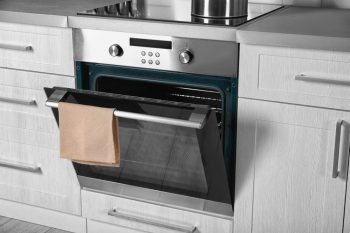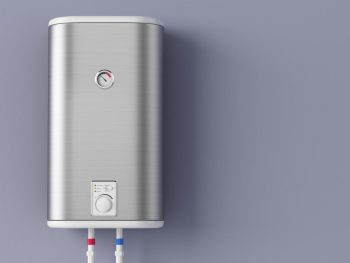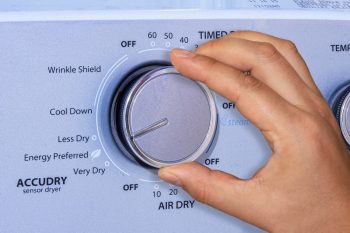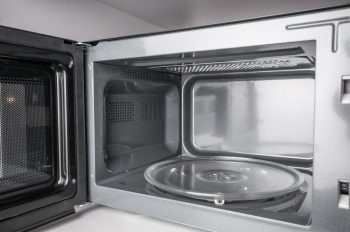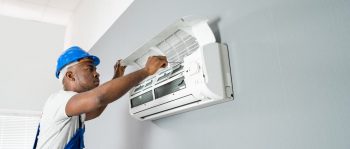
A refrigerator is an essential appliance in every home, but have you ever wondered how it works? In this in-depth article, we will explore the science and processes behind what cools the air in a household refrigerator.
The air in a household refrigerator is cooled through a process known as the refrigeration cycle. This involves the compressor, condenser coils, evaporator coils, and an expansion device. The refrigerant within the system absorbs heat from the air inside the refrigerator, cooling it down. The thermostat controls this process, ensuring the temperature stays at the desired level. Technological advancements have made this process more energy-efficient and environmentally friendly.
The Refrigeration Cycle
The cooling of air in a refrigerator is achieved through a process known as the refrigeration cycle. This cycle involves several key components: the compressor, condenser coils, evaporator coils, and an expansion device.
The Compressor
The compressor is the heart of the refrigerator. It is responsible for compressing the refrigerant vapor, raising its pressure and temperature, and pushing it into the condenser coils.
The Condenser
The condenser, or condenser coils, is located on the outside of the refrigerator. It’s here that the hot refrigerant gas releases its heat to the surrounding air, cooling down and condensing into a liquid.
The Expansion Device
The high-pressure liquid refrigerant then passes through an expansion device, which reduces its pressure and temperature, causing it to expand and cool down further.
The Evaporator
Finally, the cold liquid refrigerant flows into the evaporator coils located inside the refrigerator. As it evaporates, it absorbs heat from the air inside the refrigerator, cooling it down.
The Role of the Refrigerant
The refrigerant plays a crucial role in the cooling process. It absorbs heat and leaves cool air behind. This is achieved through a thermodynamic process that continuously turns the refrigerant from a liquid into a gas and back again.
The Thermostat’s Contribution
The thermostat in a refrigerator plays a critical role in the cooling process by monitoring the temperature and controlling the compressor accordingly. When the sensor detects that the temperature inside the refrigerator is cold enough, it turns off the compressor. If it senses too much heat, it switches the compressor on and begins the cooling process again.
The Efficiency of the Cooling System
Several factors can affect the efficiency of a refrigerator’s cooling system. These include the choice of evaporating and condensing temperatures, the performance of the refrigeration cycle components, the choice of refrigerant, and regular maintenance and cleanliness.
Technological Advancements in Refrigerator Cooling Systems
Modern refrigerators have seen numerous advancements in cooling systems, making them more energy-efficient, environmentally friendly, and technologically advanced. Some of these advancements include advanced insulation and compressor technology, thermoelectric cooling, magnetic refrigeration, solid-state cooling, digital temperature control, energy-efficient compressors, natural refrigerants, and eco-friendly systems.
Conclusion
Understanding the cooling process in a refrigerator can help in maintaining and troubleshooting the appliance. By knowing how these components work together, you can identify potential issues and perform necessary maintenance tasks to keep your refrigerator running efficiently. With advancements in technology, modern refrigerators have become more energy-efficient and environmentally friendly, offering improved performance and convenience for users.
Frequently Asked Questions
What is the best temperature setting for my refrigerator?
The optimal temperature for your refrigerator should be at or below 40° F (4° C), and your freezer should be 0° F (-18° C) to keep your food properly chilled and prevent foodborne illnesses.
How often should I clean my refrigerator?
It’s a good practice to clean your refrigerator every 3 to 4 months. Regular cleaning helps to prevent odors and build-up of food debris and spills, which can affect the efficiency of your refrigerator.
What is a refrigerant and why is it important?
A refrigerant is a substance or mixture used in the cooling mechanism of a refrigerator. It absorbs heat from the interior of the refrigerator and releases it outside, thereby cooling the air inside the fridge. Without the refrigerant, the cooling process would not be possible.
How can I make my refrigerator more energy efficient?
There are several ways to make your refrigerator more energy efficient. These include setting the correct temperature, ensuring the door seals are airtight, keeping the refrigerator full but not overcrowded, cleaning the coils regularly, and not leaving the door open longer than necessary.
Are there any warning signs that my refrigerator is not working properly?
Yes, there are several signs that your refrigerator may not be working properly. These include excessive noise, constant cycling, water leakage, high energy bills, and food spoiling faster than usual. If you notice any of these signs, it may be time to call a professional for repairs.

